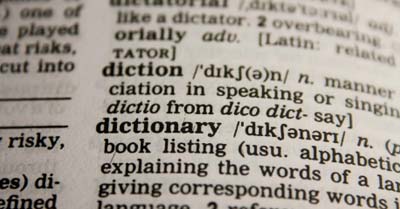Advanced Reading Course
Please support Snap Language by white-listing this site.
Dealing with Vocabulary in Reading
Vocabulary is very important in reading because unknown and unfamiliar words may affect comprehension. No matter how good your vocabulary is, you will always run into new words while reading; however, there are ways you can figure out or guess the meaning of a word using context clues so that you do not break the flow of information between you and the text.

Pixabay | Pexels
For example, sometimes writers give you the meaning of a new word through synonyms or comparisons and antonyms or contrasts; other times, they define and explain keywords. That information is right there in the text, so find it before reaching for a dictionary and interrupting your reading.
Focus on understanding the content while reading. If you understand the content, it is best not to worry about vocabulary. (You can always look words up later.)
When you are not reading for content, you can develop good habits that promote vocabulary improvement. It is also crucial to use your dictionary correctly.
Importance of Vocabulary in Reading
Vocabulary is very important in reading because writers choose words carefully to express their ideas accurately and clearly. If you do not know the words the writer has used in a passage, you will probably have difficulties understanding it. That is something English-language learners need to deal with, but even native speakers run into words they do not know.
Using Context Clues to Guess Unknown Words
It helps to read a lot so you come across a lot of vocabulary as often as possible. Nonetheless, it takes a long time and a lot of experience with the language to acquire good vocabulary.
Even avid readers who know a large number of words are likely to run into new words often. Then, what do you do when you are reading and run into words you do not know?
Looking words up slows your reading and takes the focus away from understanding the content. However, you can do a few things that will allow you to understand those unknown words.
Video Activity 3
Watch about using synonyms as context clues in the paragraph or text to figure out the meaning of unknown or unfamiliar words during reading. Take good study notes.
Video Activity 4
Watch about using other context clues in the text to guess the meaning of unknown or unfamiliar words. Take good study notes.
Related Material
Up Next: The Paragraph: Main Idea and Supporting Details
Continue the lesson to learn about main ideas, supporting details, and the location of the main idea sentence in a paragraph.